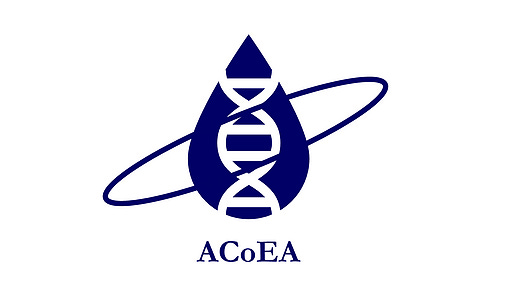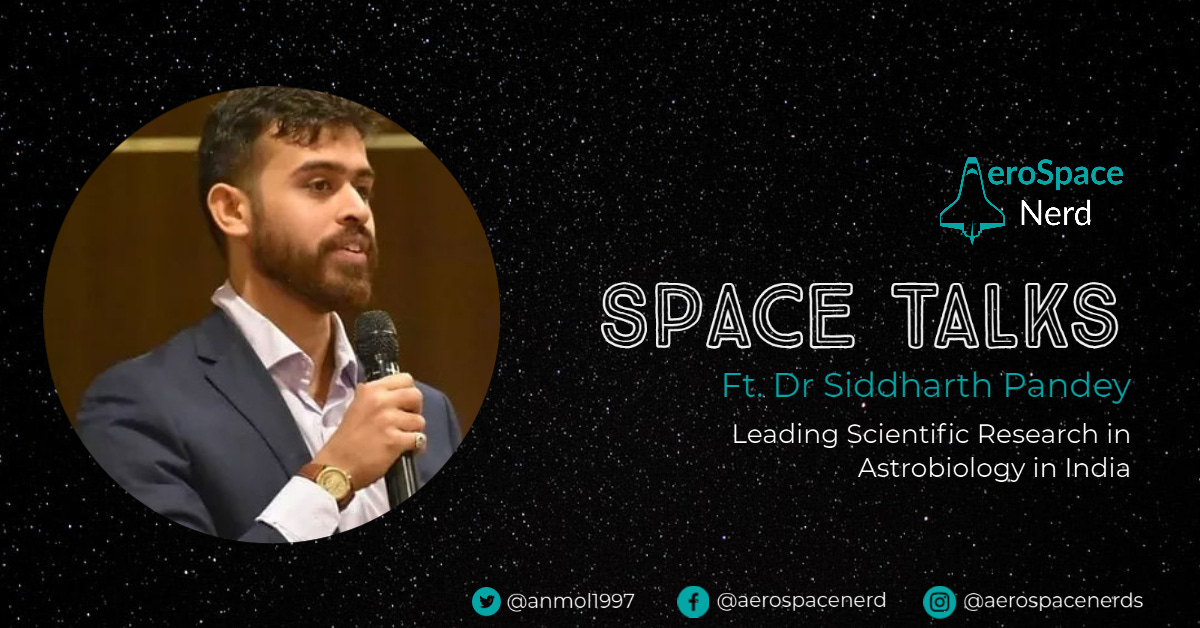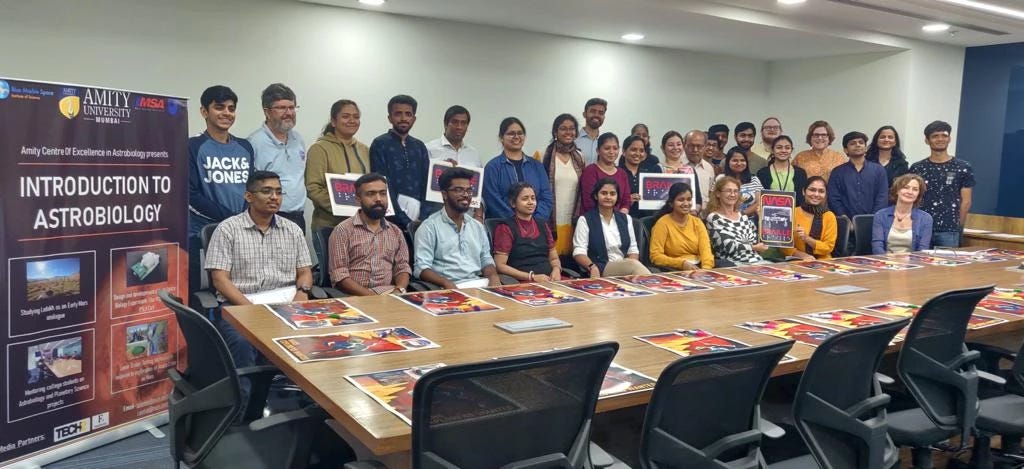Leading Scientific Research in Astrobiology in India | ft. Dr Siddharth Pandey
Dr Siddharth Pandey heads the Centre of Excellence in Astrobiology at the Amity Univerisity. Learn about his journey of leading Astrobiology in India.
What is life? What are its origins? Is there any extraterrestrial life? Astrobiology tries to answer all these questions. NASA defines it as the study of the origin, evolution, and distribution of life in the Universe. The upcoming field of space science, Astrobiology, has gained a lot of engagement and enthusiasm. Amity Centre of Excellence in Astrobiology (ACoeA) is one of the few research centres of Astrobiology in India. I got the opportunity to ask a few questions to Dr Siddharth Pandey, the head of the Centre of Excellence in Astrobiology at Amity University. So here is the latest Space Talks article:

How did you get interested in Aerospace Engineering?
I was always interested in flying objects and had a distant interest in Space as well. But I was only able to realize this interest after coming across the Space Shuttle Columbia Disaster in 2003 where seven astronauts lost their lives as they were returning from Space. That news coverage shook me up and made me curious to read more about people who sacrifice their lives for humanity, not just for themselves or their countries. The challenge and adventure in the field attracted me to decide at the age of 14 that I wanted to take up Aerospace Engineering.
You have worked in the space domain at various places such as the USA, Netherlands, Australia and India. How would you compare these experiences?
Very different and informative experiences unique to each region. I studied in India and Netherlands and worked in the US, Australia was again a combination of research experience in University and research organizations. I find it hard to compare them as there is no context for the comparison, so I do not have a preference, for example, for a location. They all added in their own way. The work culture is of course very different in these regions, and one learns a lot on maintaining a work-life balance in Australia, punctuality in Netherlands, passion and ambition in the US and the importance of maintaining old and new work relationships in India.
You decided to come back to India and head the Centre of Excellence in Astrobiology at Amity. What was your thought process behind the decision?
To be honest, I had not thought it through. Yes, I indeed wanted to help in the establishment of the centre. Still, I was on course for undertaking more research experience in Australia and the US before returning to India after another 4-5 years outside. However, life takes you on a journey :) I met my wife, and we got married. She worked in Mumbai, and I have loved this city, was born here and have spent 13 collective years here, including a great stint at IIT Bombay. So once I was offered a position by Amity University Mumbai to establish the centre, I realized this was a very unique opportunity to set up something much needed at an early stage in my career. So I took it up! It also gave me a chance to strengthen my network in India, which I never got much of an opportunity to do since I left without having worked here in 2011.
In less than two years since starting leading the Astrobiology group, you have made tremendous progress. There is one payload ready to launch, as I remember. There have been tie-ups with NASA. Online astrobiology course with a lot of enrollment. Please tell us about the journey of these two years.
It has not been easy, but I have been very very fortunate to receive prompt support and vision from Honourable Chancellor of my University, Dr Aseem Chauhan, who is a rare person who truly understands the value of Astrobiology, Space Exploration and the importance of research and collaboration for the education sector in India. This attribute is quite rare, and I am truly very fortunate to have his confidence and everything we do. The University has given me the independence and stability to establish the focus areas in Research, Education and Events.
While we currently are involved in writing proposal grants, building relationships and drawing MoUs with our partners in Industry, Academia and Government. We have been able to undertake several projects such as the Amity Space Biology Experiment-1 which will be the first space biology experiment from India, that has been selected to fly as part of the Satellize payload on ISRO PSLV C49 PS4 Platform. We have students from Engineering and Biotechnology who are engaged in several research projects as part of their final year thesis, summer internships and research projects.
I have received a lot of enthusiastic support from several departments within ISRO on the work we are shaping up to establish, from members within NASA, Universities such as Open University UK, UNSW Australia, University of Edinburgh and organizations such as Blue Marble Space Institute of Science and Mars Society Australia. I have had 3 Adjunct faculty members from these organizations who have visited us on multiple occasions (3 times last year) to help run our workshops and establish the centre. In addition, I have had one full-time faculty who has been selected for a prestigious postdoc position at Max Planck Institute in Germany and currently, we are in the process of selecting his replacement.
During COVID times, we have made the most of the opportunity of finding researchers and students at home and launched our first Online Astrobiology Certificate Course that was recently promoted by NASA Astrobiology Program among other prestigious organizations. We got a tremendous response with 795 sign-ups at the time of the deadline, from 53 countries on six continents. This is truly the largest and most diverse class of Astrobiology students ever in our observation. We might be home, but education and learning and community building will not stop.
Finally, what are your future plans and can you give some words of advice to students starting their research journey in Astrobiology in India?
I envision our centre to take shape and have ongoing projects in the field of Early Mars Analogue studies, Space Biology, Planetary surface drilling and conduct experiments in laboratories, analogue environments and low Earth orbit. We are positioning ourselves to be the leading centre in India to support the Astrobiology community and ISRO towards the development of Astrobiology missions and the sustained exploration of Astrobiology relevant analogue sites in India.
Advice for students: Subscribe to our website: www.acoea.com and attend upcoming webinars and courses as and when they come. Choose subjects that you are most interested in and try and read as much as you like, have a strong fundamental education (undergraduate degree) in that area and then look to specialize further in an astrobiology relevant topic (MS, PhD), try to attend workshops, conferences and network with scientists of the field and stay polite, persistent, observant and optimistic. These are amazing times with missions to exciting worlds being launched in the next 5-20 years. Keep the fire burning!
I would like to thank Dr Siddharth Pandey for taking the time for this Space Talks Article on Leading Astrobiology in India. About Siddharth:
Dr Siddharth Pandey is the Head of Amity Space Centre and the Centre of Excellence in Astrobiology at Amity University India. As a part of this, he is leading an initiative to establish India's first centre that will work towards studying the origins and distribution of life in the Universe. Prior to this, he has experience in building sample collection instruments for Mars and Venus surface missions while working at NASA Ames, USA. He received the NASA Spaceflight Awareness Team Award and NASA Ames Technology Transfer Award for two successful spaceflight experiments onboard the International Space Station and co-owns a registered NASA patent.
Siddharth has also led international expeditions to explore extreme environments in Ladakh and Lonar crater, Maharashtra as sites to test experiments and systems for Mars exploration. He is a Director with the Mars Society Australia and is actively involved in planning analogue field projects in India and Australia. He has been engaged in education and public outreach activities and is motivated to use Space as a tool to spread awareness, social consciousness and inclusiveness within our communities.
He holds MS in Space Systems Engineering from TU Delft, Netherlands and BTech in Aerospace Engineering from Amity University, India.




